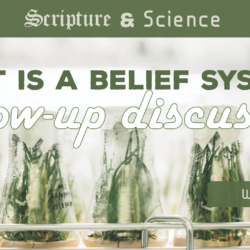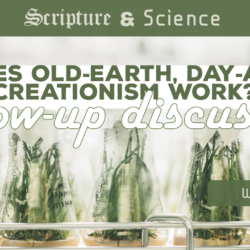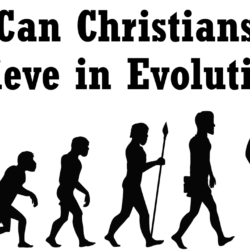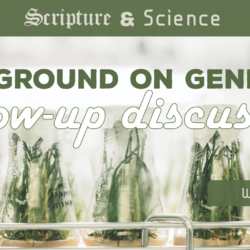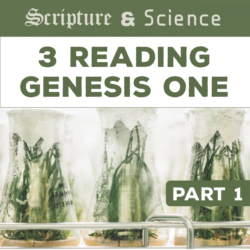This is a follow-up discussion to Will Barlow’s Scripture and Science class, part 5: Reading on Genesis One (3). If you haven’t watched or listened to that yet, you can go here or find it on the Restitutio podcast feed as episode 463 on Apple Podcasts or Spotify.
Sean Finnegan asks Will Barlow about the gap theory. They briefly discuss John Walton’s temple theory. At the end Will reveals his personal choice for which theory he thinks is the best.
- In the last episode of Scripture and Science you talked about Gap Theories and John Walton’s temple theory.
- To the atheist criticism that the Gap Theory is ad hoc, how would you respond? They might allege that Christians invented the theory to save the bible from the scientific evidence.
- You said the gap theory is primarily motivated by the text of scripture, not as a response to science. When I read Genesis 1.1-2 in the ESV, it says, “1 In the beginning, God created the heavens and the earth. 2 The earth was without form and void, and darkness was over the face of the deep. And the Spirit of God was hovering over the face of the waters.” I don’t see a gap here. I suppose gap theorists would complain that the ESV is translating v2 incorrectly. Do you know of any translations that say “became” rather than “was” for v2?
- You mention Lucifer as Satan’s name. Isn’t that just a bad translation of Isaiah 14.2 in the KJV? Do you hold to that view or were you just using the terminology of gap theorists who prefer the KJV?
- On the cataclysmic overthrow idea, would you say that Revelation 12 is the primary text for that view? (If so, let’s read it and look at it.)
- Have you come across the Jewish translations that take Genesis 1.1 as a dependent clause? See JPS 1985: “When God began to create heaven and earth—the earth being unformed and void, with darkness over the surface of the deep and a wind from God sweeping over the water—God said, “Let there be light”; and there was light.”
- You ask the question about what period should God have tied scientific understanding to. You said that science is fluid and is constantly changing. But, what about the shape of the earth? Surely a thousand years from now, they’ll still say the earth is round, right? Why not communicate that the earth is round in scripture? We could avoid a lot of turmoil among the flat-earth movement today.
- Walton’s theory is that God is setting up his temple, not describing the creation of the universe. His temple is the Garden of Eden on earth, right? How does that work? Did God have his temple in Eden only or the whole earth or the whole universe? How did the fall affect God’s presence in his temple?
- So…you went through young earth creationism, day-age theories, gap theories, and the temple theory…but you never told us what you believe. Which one do you think is the best?

